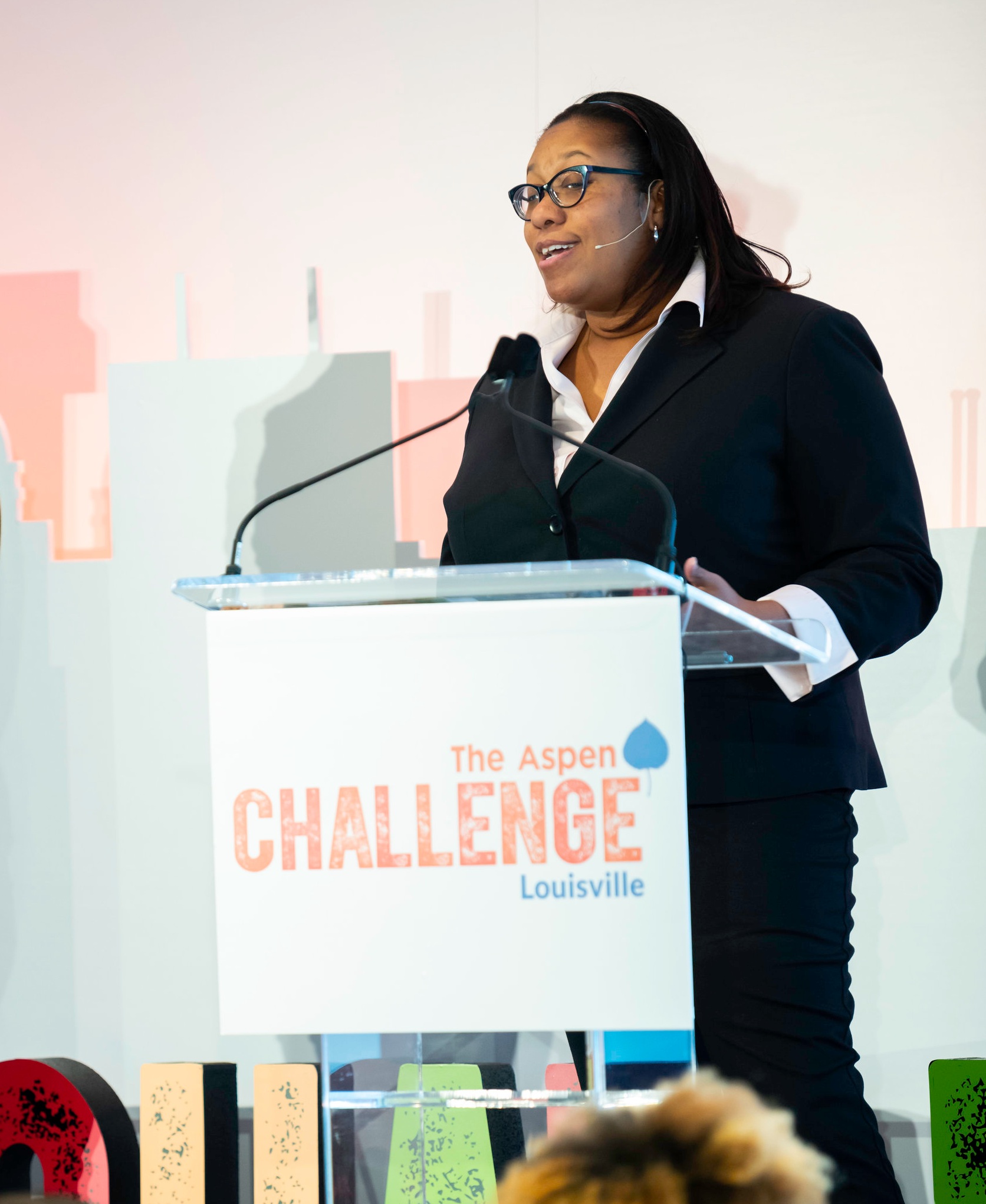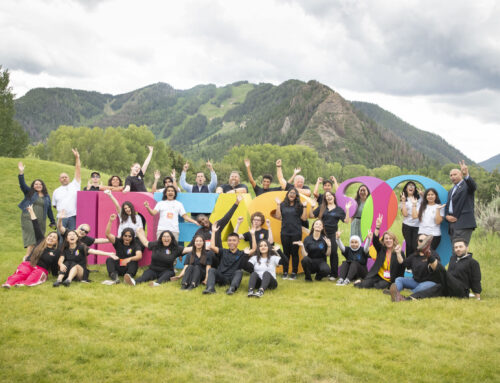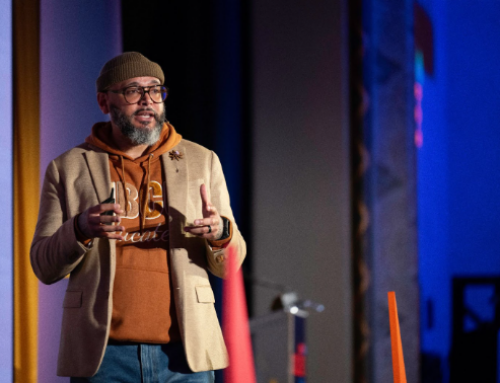Should Your Gender, Zip Code, or the Color of Your Skin Determine Your Health?
By Jennifer Valenzuela and Tigee Hill
How does one respond to a teenage audience when a girl asks why the neighborhood her friend lives in, just four miles away, has a lower life expectancy than where she lives? That question was asked by many teenagers at the Dallas and Louisville Aspen Challenge Opening Forums when we talked about health disparities.
Did you know that your zip code is the greatest predictor of how long you are expected to live? Not your blood pressure, not your cholesterol levels, not your genetics. Your zip code.
In Dallas, there is an 18-year difference in life expectancy for residents living only six miles apart. In Louisville, the difference is 15 years: Residents of the mainly African American west end live to 67 years on average, while their counterparts in the eastern half of Jefferson County, which is more than 70 percent white, have an average life expectancy of 82 years (both genders combined). That discrepancy of 15 to 18 years could mean whether or not you see your grandchild graduate, be at your great-grandchild’s first birthday, or simply witness daily pleasures with those you love and experience life.
And the crazy part? The people living in both neighborhoods could be exercising, eating, and living life the same way.
These are examples of health inequities, systematic differences in the opportunities groups have to achieve optimal health, leading to unfair and avoidable differences in health outcomes. Health inequities exist between many groups, whether by gender, race, or age, just to name a few. One study found that graduating from college could add five years to life expectancy. And the Centers for Disease Control shows that babies born to masters-level or higher-educated, middle-class black mothers are more likely to die before their first birthday than babies born to poor white mothers with less than a high school education.

Tigee Hill presents her challenge at Louisville Opening Forum
At Health Leads, our foundation was built with college students volunteering in health systems to support patients and families accessing the essential needs in their community — things like food, housing, heat, and transportation. We’ve evolved over 20 years and now know that getting families connected to their local food pantries is important, but does not address the root causes of health inequities. We know that closing the gap in these widely varied life expectancy rates means focusing on securing adequate and affordable housing in your community, consistent and reasonable eligibility requirements to public benefits, like WIC, and transportation systems that serve the predominantly minority neighborhood as reliably and conveniently as they do the nearby white neighborhoods.
We’ve trained over 10,000 students in the past 20-plus years. Together, we’ve learned so much about the realities of all the isms (racism, sexism, ageism, povertyism, etc). Many of these students have now become doctors and public health practitioners; they work to shape equitable health policies, create and spread technology for managing essential needs, and so much more. It is imperative that youth continue to be involved in and lead on this work and have an opportunity to better the health of their communities.
That’s why we were thrilled to accept the opportunity with the Aspen Challenge to present the challenge of health inequities to high school students of Dallas and Louisville. While speaking with the students in Louisville, we asked if anyone was interested in a health-related career — and hands went up all over the room. But, we also wanted them to know that it’s not all doom and gloom. They needed to hear that while the odds are often against the non-majority populations, these groups bring a level of resourcefulness, brilliance, and resilience that is unparalleled. Every day, we see our patients tap into assets like family, friends, church, and neighbors — a wide range of assets in their communities that often go unrecognized.
So how do you combine the neighborhood assets, identify gaps, and develop a solution to reduce the health inequities facing neighborhoods in Dallas and Louisville? We believe these high school students can come up with ideas no one else has considered.
We’re excited to see the solutions in the coming weeks and learn from our next generation of leaders.
Jennifer Valenzuela is the managing principal of people and equity, and Tigee Hill the director of program and initiatives, for Health Leads, a nonprofit organization with a vision of health, dignity and well-being for every person in every community.





